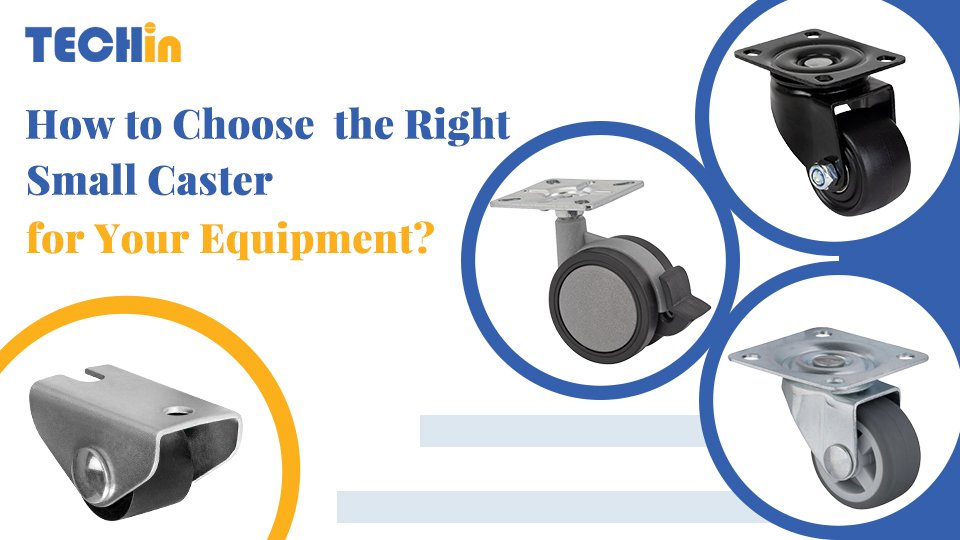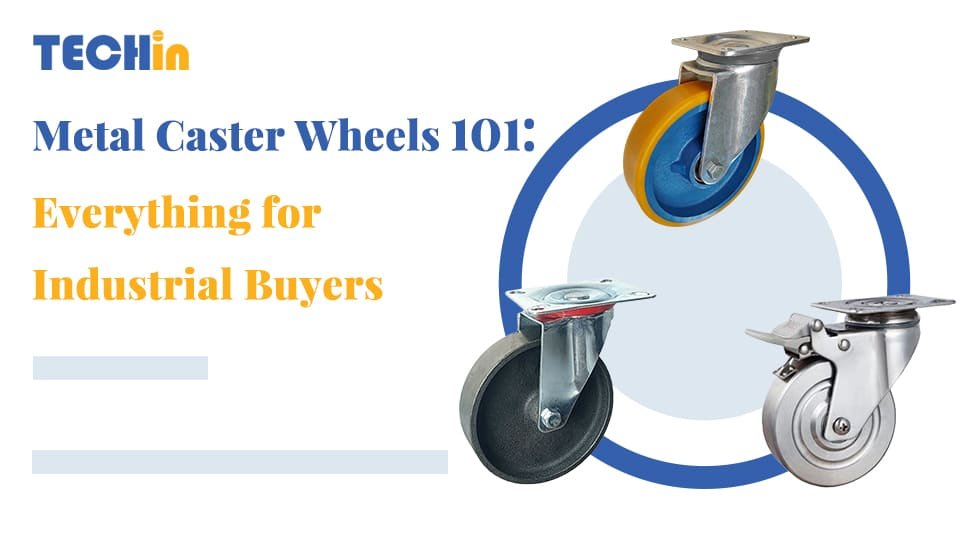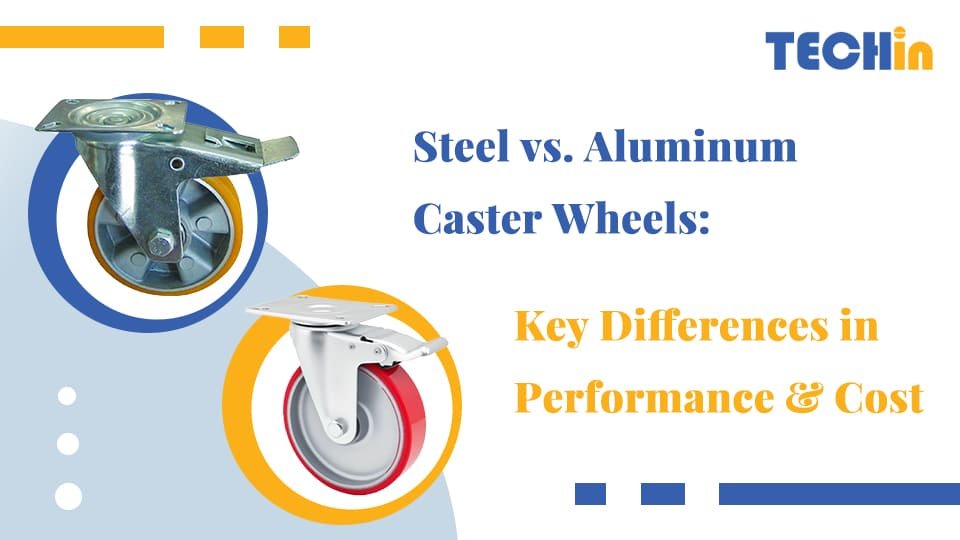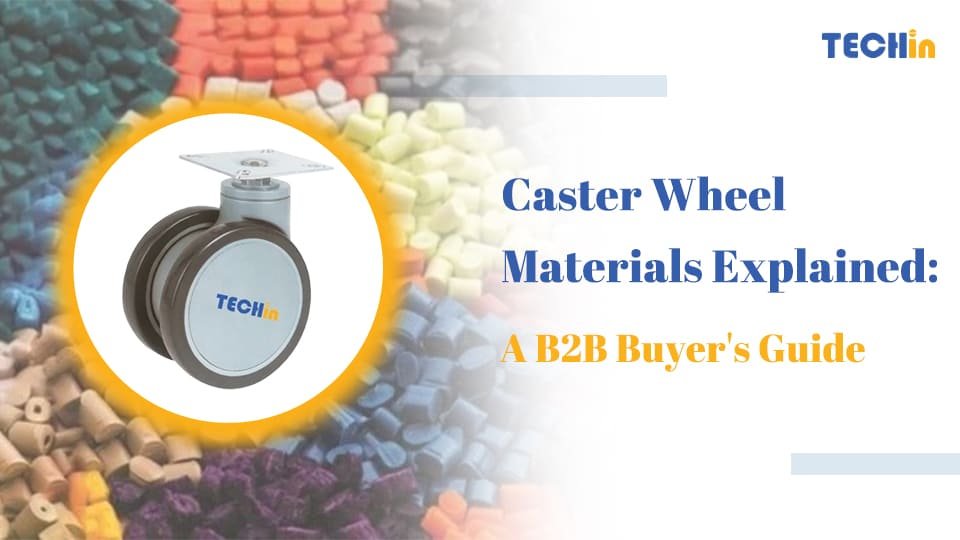Shopping carts are a staple in retail environments, but few people think about the wheels that make them so easy to maneuver. Understanding the types of caster wheels used in shopping carts can help buyers make informed decisions, ensuring durability and ease of use.

Shopping carts usually have caster wheels that are designed to move smoothly and easily. These wheels are made from materials like polyurethane (PA), thermoplastic rubber (TPR), and thermoplastic elastomer (TPE), which make them durable, smooth, and resistant to chemicals and moisture. They usually come in sizes between 4 and 5 inches in diameter, which is a good balance between stability and maneuverability.
Now let’s get into the specifics of shopping cart caster wheels and why they’re so great.
What materials are shopping cart caster wheels made of?
Polyurethane (PA)
- Durability: Polyurethane wheels are highly resistant to wear and tear, making them ideal for high-traffic areas like supermarkets and retail stores.
- Smooth Ride: They provide a cushioned, smooth experience, reducing noise and vibrations. This ensures a pleasant shopping experience for customers.
- Chemical Resistance: Polyurethane wheels can withstand exposure to various chemicals, ensuring they last longer even in environments where cleaning agents or spills are common.
- Moisture Resistance: Polyurethane does not degrade when exposed to moisture, making it suitable for environments where spills are frequent.
Thermoplastic Rubber (TPR)
- Soft and Quiet: TPR wheels are softer than other materials, providing a quieter operation. They absorb shocks well, making the ride smoother for customers.
- Grip: TPR offers excellent grip, reducing the chances of the cart slipping on smooth surfaces. This makes it ideal for environments where stability and control are crucial.
- Non-Marking: TPR wheels do not leave marks on floors, keeping the retail environment clean and presentable.
- Chemical Resistance: Similar to polyurethane, TPR wheels resist many chemicals, enhancing their durability.
Thermoplastic Elastomer (TPE)
- Flexibility: TPE wheels offer a rubber-like feel, which can be quieter and provide more shock absorption than harder materials.
- Adaptability: These wheels are more adaptable to different floor surfaces, providing a smoother ride over uneven or textured surfaces.
- Environmental Friendliness: TPE is often recyclable, making it a more sustainable option for those looking to reduce their environmental footprint.
- Durability: While softer than polyurethane, TPE wheels still offer good durability and are suitable for a range of retail environments.
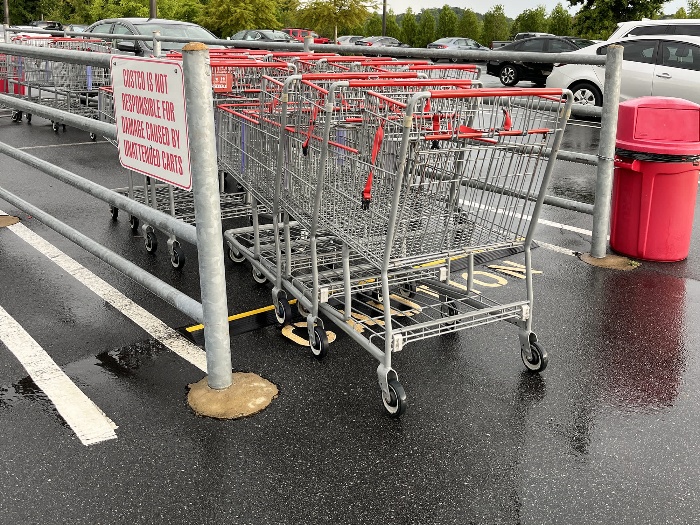
What is the benefit of thermoplastic rubber (TPR) on shopping cart wheels?
- Soft and Quiet Operation:
- Noise Reduction: TPR wheels provide a quieter operation compared to harder materials, making them ideal for indoor environments where noise reduction is important.
- Shock Absorption: The soft nature of TPR helps absorb shocks, providing a smoother ride for customers as they maneuver the carts.
- Excellent Grip:
- Enhanced Stability: TPR offers excellent grip on various surfaces, reducing the risk of the cart slipping or skidding. This is particularly important in retail environments where spills might occur.
- Non-Marking: TPR wheels do not leave marks or scuffs on floors, helping to maintain a clean and professional appearance in the store.
- Durability:
- Chemical Resistance: TPR wheels are resistant to many chemicals, making them suitable for environments where they might be exposed to cleaning agents or other substances.
- Long-Lasting: The durability of TPR ensures that the wheels can withstand the daily wear and tear of a busy retail environment, reducing the need for frequent replacements.
- Cost-Effective:
- Lower Maintenance Costs: The durability and non-marking properties of TPR wheels contribute to lower maintenance costs, as floors stay cleaner and wheels last longer.
- Versatile Usage: Suitable for a wide range of retail environments, making TPR wheels a versatile and cost-effective choice for shopping carts.
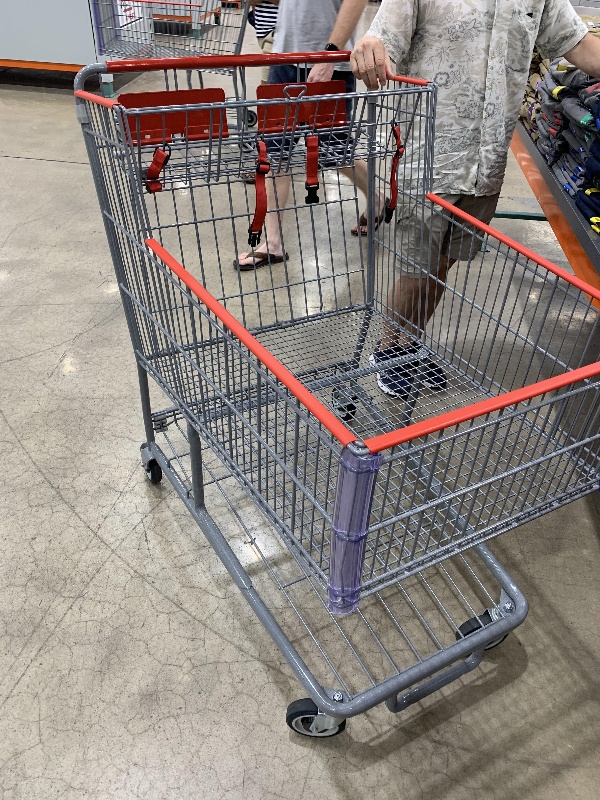
What are the most common sizes of shopping cart caster wheels?
- 4-Inch Diameter:
- Stability: Provides a good balance between size and stability, ensuring that the cart does not tip over easily.
- Ease of Use: Suitable for general retail environments, offering enough height to navigate small obstacles and provide a smooth ride.
- 5-Inch Diameter:
- Enhanced Maneuverability: Offers better movement over different floor surfaces, including transitions between different types of flooring.
- Load Capacity: Can handle more weight compared to smaller wheels, making them ideal for larger carts or those carrying heavy loads.
How to choose suitable shopping caster wheels for your needs?
- Material Type:
- Polyurethane (PA): Ideal for most retail environments due to its durability and smooth operation. It’s suitable for various floor types and provides a quieter experience.
- Thermoplastic Rubber (TPR): Best for environments where noise reduction and grip are priorities. TPR wheels provide a smooth and quiet ride, making them ideal for settings where customer comfort is paramount.
- Thermoplastic Elastomer (TPE): Suitable for a wide range of environments due to its flexibility and adaptability. TPE wheels are environmentally friendly and offer a balance between softness and durability.
- Load Capacity:
- Weight Handling: Ensure the wheels can support the maximum load expected in your environment. Overloading wheels can lead to premature wear or failure.
- Durability: Higher load capacity typically translates to longer-lasting wheels, as they are built to handle more stress without deforming or breaking.
- Environmental Conditions:
- Chemical Exposure: Select wheels that can withstand any chemicals they might encounter, such as cleaning agents or spills.
- Floor Type: Consider wheels that are gentle on your specific type of flooring to avoid damage. For example, softer materials are better for delicate floors like hardwood or tile.
- Maintenance Requirements:
- Ease of Maintenance: Choose wheels that are easy to clean and maintain to ensure long-term performance.
- Availability of Replacement Parts: Ensure that replacement wheels or parts are readily available to minimize downtime when maintenance is needed.
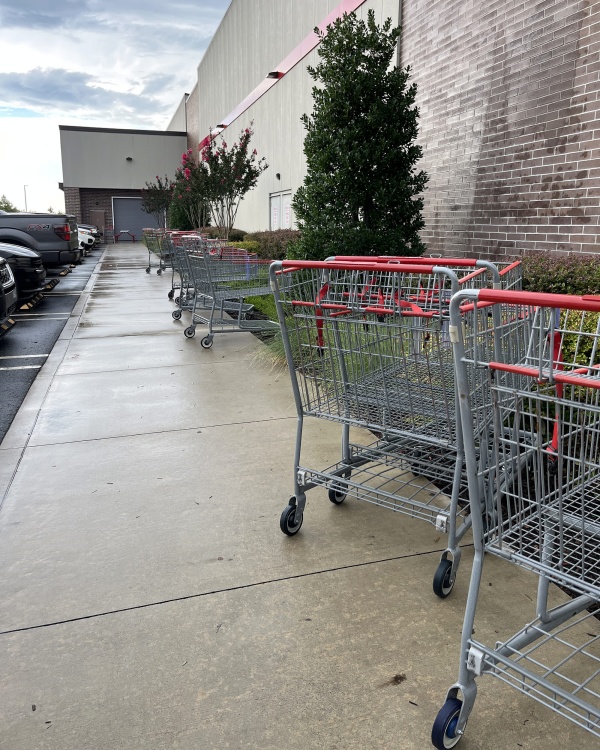
How often should shopping cart wheels be replaced?
- Regular Inspections:
- Frequency: Check wheels periodically for signs of wear and damage. Regular inspections help catch issues early before they become significant problems.
- Signs of Wear: Look for cracks, flat spots, or decreased maneuverability. Worn wheels can affect the cart’s performance and customer experience.
- Replacement Schedule:
- Usage-Based: Wheels should be replaced every few years, depending on how frequently the carts are used. High-traffic environments may require more frequent replacements.
- Preventative Maintenance: Regularly maintain and replace wheels to ensure optimal performance and safety. Keeping spare wheels on hand can help address issues promptly without disrupting operations.
- Operational Efficiency:
- Performance Checks: Monitor the performance of the wheels regularly. If the carts become harder to maneuver or make more noise, it may be time to replace the wheels.
- Customer Feedback: Pay attention to customer feedback regarding cart performance. Difficulty in maneuvering can impact the shopping experience and indicate the need for wheel replacement.
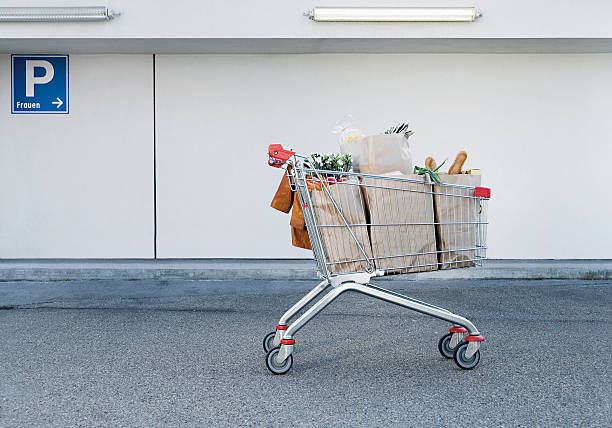
Summary
Selecting the right caster wheels for your shopping carts will ensure they last a long time and work well. Knowing the materials and types of wheels, like polyurethane (PA), thermoplastic rubber (TPR), and thermoplastic elastomer (TPE), will help you make the best buying decisions. Regular inspections, proper maintenance, and considering the environment are all important to keep your shopping cart wheels in good shape. This will give your customers a better experience and save you money on maintenance.



